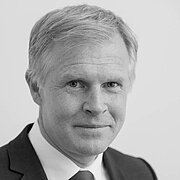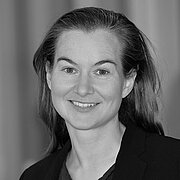Tech companies have recently been criticised for not doing enough to control the negative effects of the internet. Spreading false information and hate speech, fomenting conflict, discontent and polarisation, and threatening peace and stability are among some of the most discussed issues. On the other hand, many tech companies have invested in this field and argue that it shouldn’t be them, but governments, who decide how the internet should be regulated.
But who should decide these rules and who should enforce them? Current ideas include the creation of oversight authorities, imposing fines, increasing access to data for independent observers and improving the transparency of algorithms. The parameters set now will guide the future regulation of social media like Facebook, Twitter, and Youtube, and thus require the right balance between protecting freedom of speech and addressing concerns about accurate information, healthy public discourse, user privacy and political stability.
Join Nick Clegg, Vice President of Global Affairs and Communications at Facebook, Benoit Loutrel, former Director General of France’s Electronic Communications and Postal Regulatory Authority (Arcep) and Daniela Stockmann of Hertie School for a debate moderated by Katrin Bennhold, The New York Times Berlin bureau chief on the current and future challenges of regulating the internet.
Words of welcome

Henrik Enderlein is President and Professor of Political Economy at the Hertie School as well as Director of the Jacques Delors Institute Berlin.
Keynote

Nick Clegg is the Vice President of Global Affairs and Communications at Facebook and former Deputy Prime Minister of the United Kingdom. Before that, he spent a decade working in the EU – first as a senior adviser in the European Commission dealing, among other things, with the accession of China and Russia into the World Trade Organization, and later as a Member of the European Parliament between 1999 and 2004. In 2005 he was elected to the UK Parliament, and became leader of Britain’s third-largest political party, the Liberal Democrats, two years later. Following the 2010 election, he led his party into government for the first time since it was founded, establishing Britain’s first post-war coalition government and serving as UK Deputy Prime Minister from 2010-2015. As one of the most high-profile pro-European voices in British politics, he played an influential role in the debate around Brexit following the referendum in June 2016 and established Open Reason, a think tank examining issues as diverse as drugs policy and the fourth industrial revolution.
Discussants

Benoit Loutrel is head of France’s experiment to regulate Facebook in fighting hate speech online. He is a former Director General of France’s Electronic Communications and Postal Regulatory Authority (Arcep) (2013 to 2016), where he also worked from 2004 to 2010. In the interim, he set up a 4.5-billion-euro digital investment plan as part of France’s “Investissements d’avenir”. He previously spent eight years at the World Bank in infrastructure financing and was also director of public policy for Google France for a few months in 2017. He studied industrial economics and regulation at Ecole Polytechnique, ENSAE, and Toulouse School of Economics.

Daniela Stockmann is Professor of Digital Governance at the Hertie School. Her current research focuses on the impact of digitalisation and its challenges for policymakers and citizens. Her most recent research project, funded by a Starting Grant of the European Research Council, explores the impact of the technological design of social media platforms on user behaviour regarding politics. She holds degrees from the University of Rochester, the School of Oriental and African Studies at the University of London, and a PhD from the University of Michigan, Ann Arbor (2007). Before joining the Hertie School faculty, she was Associate Professor of Political Science at Leiden University. Her book, Media Commercialization and Authoritarian Rule in China (Cambridge University Press, 2013), received the 2015 Goldsmith Book Prize awarded by the Harvard Kennedy School Shorenstein Center on Media, Politics, and Public Policy.
Moderator

Katrin Bennhold is the Berlin bureau chief of The New York Times and has been a correspondent since 2004. Based first in France and then in Britain, she has been writing on a range of topics from European politics and terrorism to gender and immigration. Bennhold was a Nieman fellow at Harvard University in 2012 and 2013.

